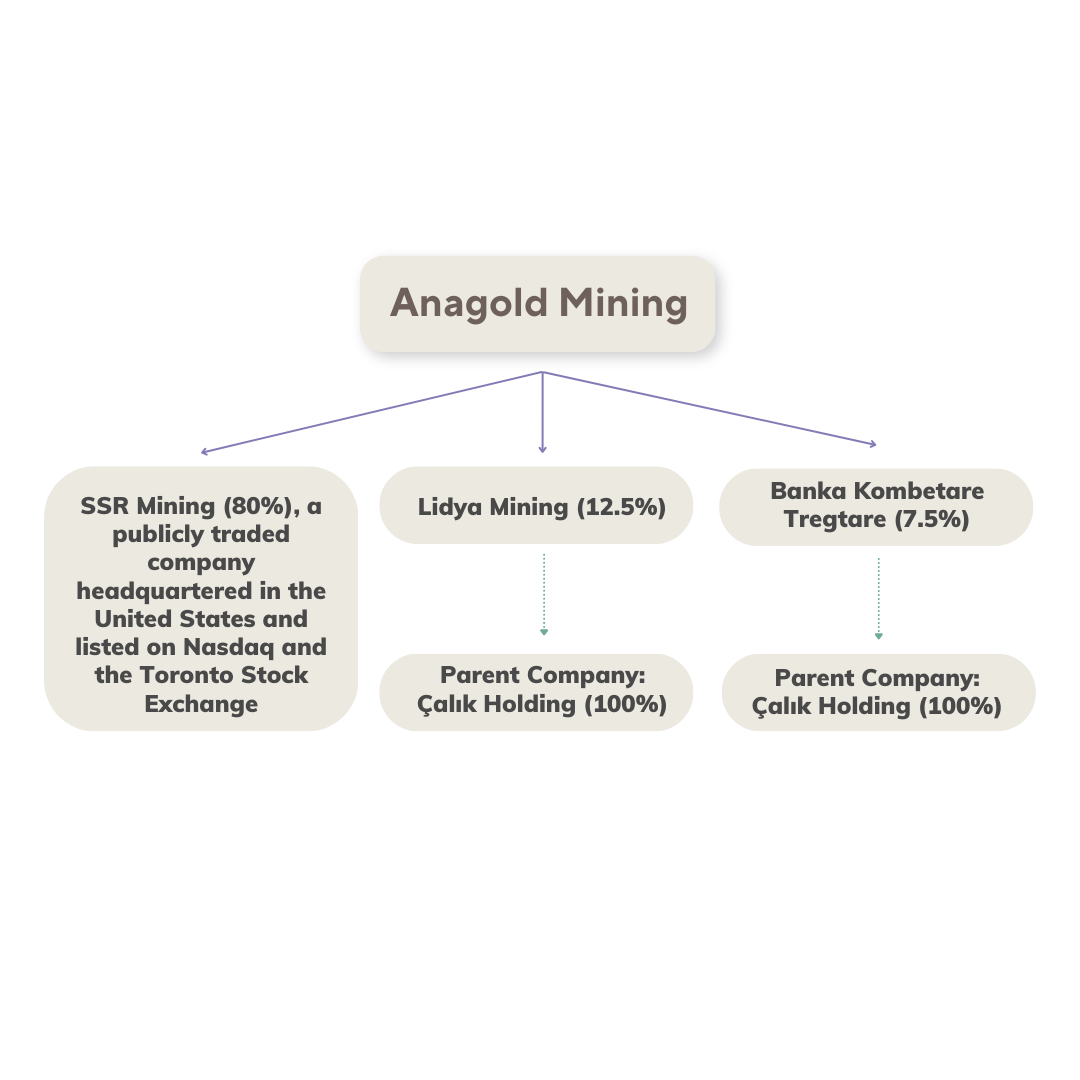Çöpler Mine Landslide from Business & Human Rights Perspective
2001
Construction and drilling activities in Çöpler-İliç mine, located in the province of Erzincan in eastern Türkiye, commenced in 2001. Today, Çöpler is the second biggest gold mine of Türkiye, after Türag Metal’s Kışladağ Gold Mine.
2010
The Çöpler gold mining project obtained a favourable Environmental Impact Assessment (EIA) report in 2008, despite being located on an active fault line. Subsequent to the issuance of the EIA report, Anagold and Lidya Madencilik received the operational rights for cyanide gold mining in the Çöpler area. Although various NGOs and residents of the Çöpler-İliç region petitioned for the cancellation of Anagold’s EIA report, most of these petitions were rejected by the Council of State.
2020
In 2020, Çöpler was closed due to a cyanide leak resulting from a ruptured pipe that discharged into the Euphrates River. The Turkish Medical Association documented elevated levels of arsenic in samples collected from surface water, soil, aquatic flora and fauna, terrestrial plants, and avian species in the vicinity of the gold mine.
However, after the company incurred fines and a cleanup operation was undertaken, Çöpler resumed its operations two years later.
2022
Shortly after the reopening of Çöpler, a cyanide pipe burst, releasing about 20 m3 of cyanide water overnight. In response, the Administrative Court fined the company 16.5 million Turkish liras and temporarily suspended its operations. Despite attempts by local communities to close the mine, it reopened with an increased capacity.
Following the reopening, Türkiye Engineers and Architects Chambers Union (TEACU) took a stand by filing a petition against the Ministry of Environment, seeking the annulment of specific articles within the “Regulation on Environmental Impact Assessment.” TEACU contended that these provisions diminished the public’s role in environmental affairs and hindered their participation in projects. The Council of State partially upheld the complaint by suspending the execution of certain articles. However, the decision has not been implemented by local public authorities.
2024
On 13 February 2024, Çöpler was hit by a devastating landslide that buried nine mine workers under cyanide-laden soil. The incident occurred when 10 million m3 of sludge flowed over the open pit. The tailings, saturated with cyanide and sulphuric acid used in the gold extraction process, dragged towards the Euphrates River, which flows from Türkiye into neighbouring Syria and Iraq. Environmental NGOs draw attention to the risk of toxic compounds entering drinking water through groundwater, noting that this poses a serious threat to the water resources of a large geographical area.
Impacts of Çöpler Mining Project on Human Rights and Environment
Human Rights Impacts:
- Violation of right to life and right to work in a safe environment for mine workers
- Violation of right to live in a healthy environment and right to life in extreme cases for inhabitants in the area
- Violation of people’s right to public participation for inhabitants in the area
Environmental Impacts:
- Impacts on livelihoods of local communities
- Bio-diversity losses
In its 2022 Sustainability and ESG Report, SSR Mining announced policy commitments related to stakeholder engagement, including engagement with local communities and trade union representatives.
However, these commitments are at odds with the widespread human rights and environmental damage that occurred in February 2024 as a result of cyanide gold exploration activities, as well as years of civil society and popular protests in the region.
Human Rights and Environmental Responsibilities
Several actors can be associated with the human rights violations and environmental damages occurred due to the landslide at the Çöpler-İliç mine operated by Anagold Mining.
In its 2022 Sustainability and ESG Report, SSR Mining announced policy commitments related to stakeholder engagement, including engagement with local communities and trade union representatives.
However, these commitments are at odds with the widespread human rights and environmental damage that occurred in February 2024 as a result of cyanide gold exploration activities, as well as years of civil society and popular protests in the region.
By not taking necessary operational health and safety measures regarding their operations and workers, Lidya Mining and Anagold violated their own policy commitments to:
- Determine and mitigate potential risks, eliminate or control hazards and to prevent injuries, occupational diseases and accidents,
- Be adequately prepared for incidents and emergencies, to ensure the development and implementation of effective response systems, and to provide a healthy and safe working environment.

Going Beyond National Laws: Human Rights and Environmental Responsibility
Mere compliance to environmental, health and safety laws, regulations and standards (especially Environmental Impact Assessment Regulation and Environment Law) applicable in Türkiye does not waive the corporate responsibility to respect human rights.
The corporate responsibility to respect human rights under United Nations Guiding Principles on Business and Human Rights exists above and beyond the need to comply with national laws and regulations protecting human rights and environment. It applies equally where relevant domestic law is weak, absent or not enforced.
Integrating Human Rights and Environmental Due Diligence and Stakeholder Engagement
- In fulfilling their responsibilities to respect human rights, companies should conduct a human rights and environmental due diligence (HREDD) process consisting of a risk management and reporting system that includes periodic risk assessments and grievance mechanisms.
- Since stakeholder engagement is crucial in HREDD, companies need to engage in an effective open dialogue with local communities and other stakeholders (e.g. NGOs and human rights defenders).
Aftermath of Çöpler: Mitigating Human Rights and Environmental Impacts
- Mining companies should adopt a HREDD process based on meaningful dialogue with all stakeholders, in particular local communities, to identify and prevent environmental and human rights risks that may be caused by their activities or linked to their business relationships before they occur.
- In the aftermath of the landslide in Çöpler, which left nine mine workers buried and caused major environmental devastation, companies have a responsibility to cooperate to effectively mitigate adverse human rights and environmental impacts they have caused in the region and to provide effective remedies for victims.








